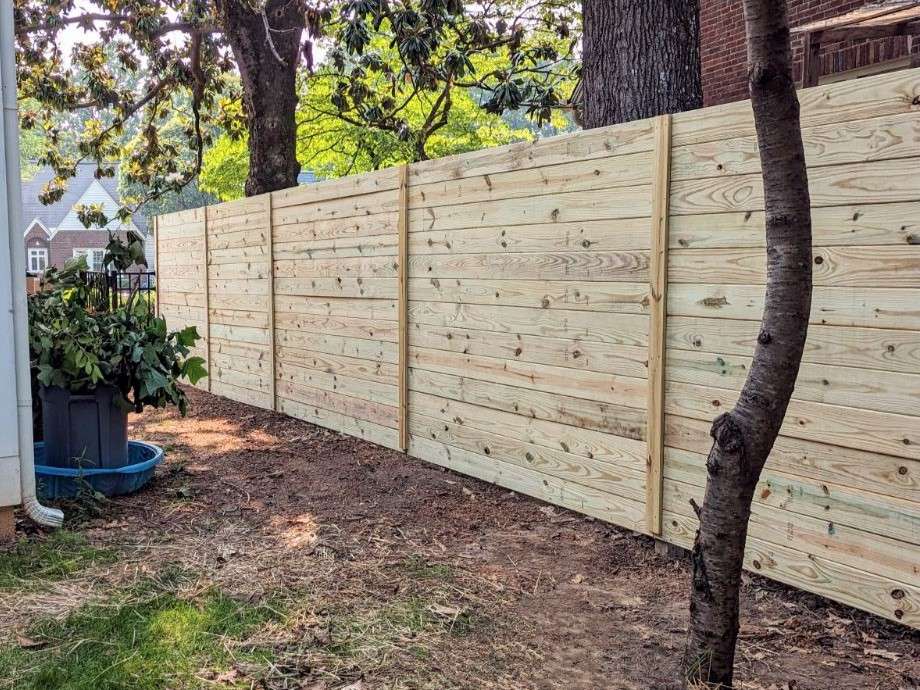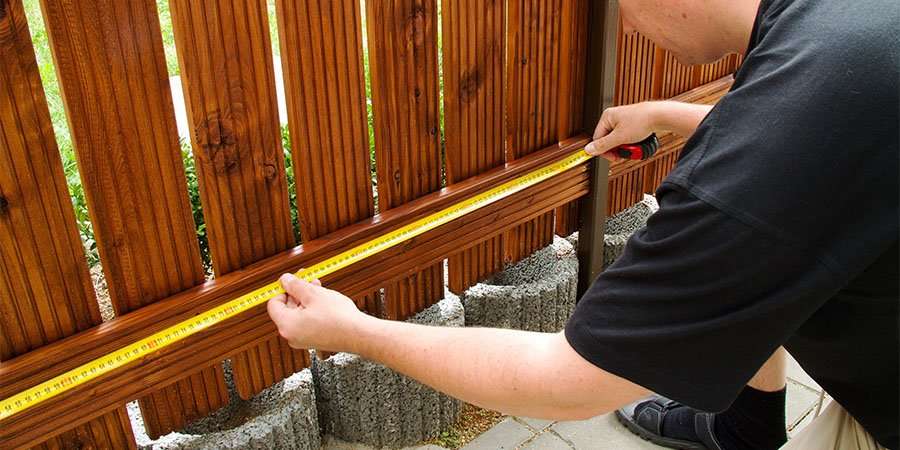All Categories
Featured

When mounting a fencing, selecting the ideal material is vital to stabilizing performance, aesthetics, and spending plan. Wood, plastic, and aluminum are amongst the most commonly picked fence products, each with its staminas and disadvantages. This overview explores the pros and cons of these options to assist you make an educated choice.

Timber Fence. Pros:. Natural Beauty: Wood's ageless charm can boost any kind of residential or commercial property with its cozy and traditional look. Adjustable: You can repaint, tarnish, or carve wood to fit your style choices. Cost effective: Timber secure fencing is initially a lot more budget-friendly contrasted to some various other products. Eco-friendly: As a sustainable source, wood is naturally degradable and commonly taken into consideration green. Disadvantages:. Maintenance-Intensive: Normal securing, painting, or staining is needed to avoid damage from climate and insects. Prone to Degeneration: Without appropriate treatment, timber can rot, warp, or crack with time. Much shorter Lifespan: Typically, timber fences last 10-15 years, depending upon the type of timber and maintenance. Timber is an excellent alternative for those who value appearances and are prepared to buy regular maintenance to preserve its look and toughness.
Vinyl Fence. Pros:. Low Maintenance: Vinyl calls for very little care-- just occasional cleaning with soap and water. Weather Resistant: It does not warp, rot, or catch insect damage, making it highly sturdy in numerous environments. Durability: Plastic fencings can last 20-30 years with little to no repairs. Layout Variety: Available in a vast range of shades, structures, and designs, including wood-like looks. Cons:. Higher Initial Price: Plastic fencings are extra expensive in advance compared to timber. Vulnerability to Cold: In exceptionally cool climate, plastic can become breakable and vulnerable to cracking. Limited Fixing Options: Matching replacement panels can be challenging if damages happens. Vinyl fence is suitable for homeowners searching for a resilient, low-maintenance solution that supplies modern-day adaptability.

Aluminum Fencing. Pros:. Rust-Proof: Light weight aluminum withstands rust, making it an exceptional option for humid or wet settings. Durable: Regardless of being lightweight, light weight aluminum is solid and can withstand extreme climate condition. Reduced Upkeep: It calls for marginal upkeep, commonly just periodic cleansing. Long Lifespan: Light weight aluminum fences can last years without substantial degeneration. Elegant Style: Frequently made use of for decorative purposes, light weight aluminum fence adds a streamlined, innovative want to residential properties. Disadvantages:. High Initial Financial investment: Light weight aluminum fencings are amongst the pricier choices on the market. Less Personal privacy: The open layouts typical with light weight aluminum fence don't give much personal privacy. Susceptible to Damages: While sturdy, light weight aluminum can dent if hit with adequate pressure. Light weight aluminum is an outstanding selection for homeowners prioritizing aesthetics and longevity without requiring much maintenance.
Making Your Decision. When deciding in between plastic, timber, or aluminum fencing, consider your top priorities:
Wood suits those who appreciate a natural look and don't mind placing in upkeep initiative. Vinyl is the very best choice for those looking for a low-maintenance, weather-resistant service. Light weight aluminum offers streamlined style and lasting toughness yet may lack personal privacy. By very carefully evaluating these products' features, you can choose a fence that complements your home while meeting your aesthetic and practical requirements.
Latest Posts
Elegant Comfort Begins With the Ground Up
Published Apr 22, 25
1 min read
Top-Quality Auto Repair Near You - Trust Montclare’s Certified Professionals
Published Apr 22, 25
2 min read
Why Pick Vinyl Fence from Washington Fence
Published Apr 22, 25
1 min read